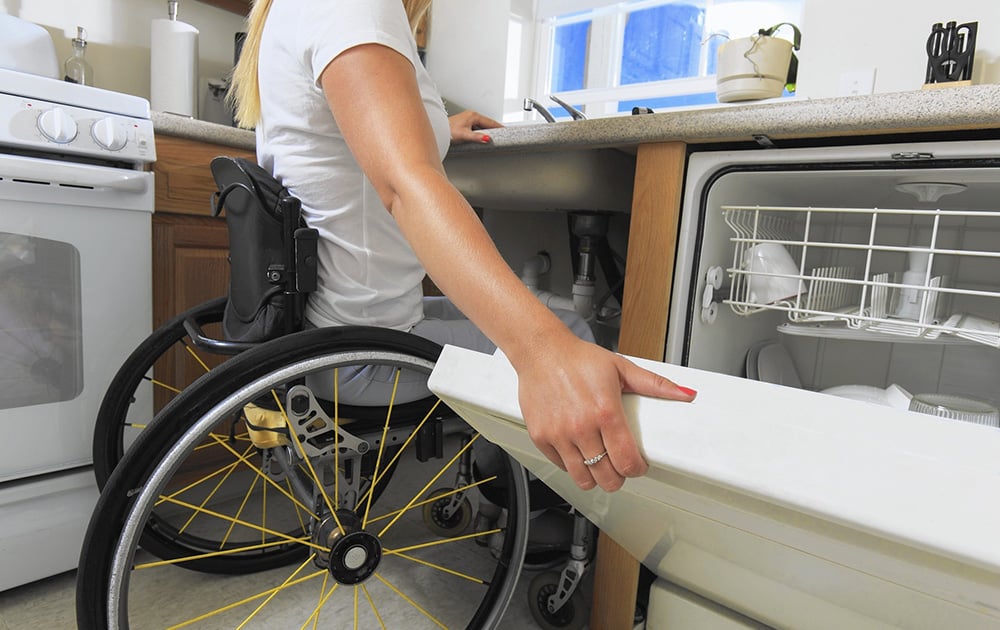“Shocking” level of accessible homes in Britain is poorly impacting the health and quality of life of disabled people, new survey unveils

Most people in Britain are not able to welcome wheelchair users into their homes due to poor access, according to a new YouGov poll commissioned by Habinteg.
The poll follows research from Habinteg earlier this year that revealed 23 percent of new homes outside London are planned to be accessible, despite a rapidly ageing population.
Commissioned by accessible housing provider Habinteg, the YouGov poll surveyed 2,014 people in England, Wales and Scotland and reveals:
- Only one in five say a wheelchair user would reasonably be able to access all areas of their home
- More than two-thirds confirmed that such manoeuvrability would not be possible
- Under a third of respondents in England felt that wheelchair users would be able to make use of the appliances in their home including accessing the wardrobes and opening fridges/ovens
Typical reasons why homes are inaccessible include steps into the front door, width of doors into and around the house, and bathrooms that are located upstairs.
Habinteg says that this “shocking” level of poor access is having a detrimental impact on the health and quality of life of disabled people and their families.
Sheron Carter, CEO at Habinteg, said: “Habinteg’s founding mission was to ensure that disabled people and non-disabled people can live together as neighbours. Today’s poll results show how far we have yet to go as a society. They reinforce what we have known for a long time: the government and local authorities are simply not doing enough for our disabled and older population.
“We are calling on the government to urgently change national policy to ensure all new homes are built to accessible and adaptable standards. This was promised by former Prime Minister Theresa May in July as part of a new consultation, and we now need the new PM to honour that pledge.”
Now, Habinteg is calling on the UK Government to urgently change policy on accessible housing to ensure all new homes are built to accessible and adaptable standards.
Commenting on the results of the survey, Holly Holder, Evidence Manager at the Centre for Ageing Better, said: “This insightful polling lays bare the shocking state of our homes when it comes to access for wheelchair users.
“A safe and accessible home is deeply important for all of us. Whilst it’s not inevitable, the likelihood is that most of us will become less physically able as we grow older. And many people have mobility challenges from lifelong conditions or because of an accident.
“All of us benefit from step free, well designed spaces when we’re handling furniture, heavy shopping or luggage and welcoming visitors with access requirements. All new homes should be built to accessible standards, and people should be given more support to adapt and repair the homes they’re already in.”

